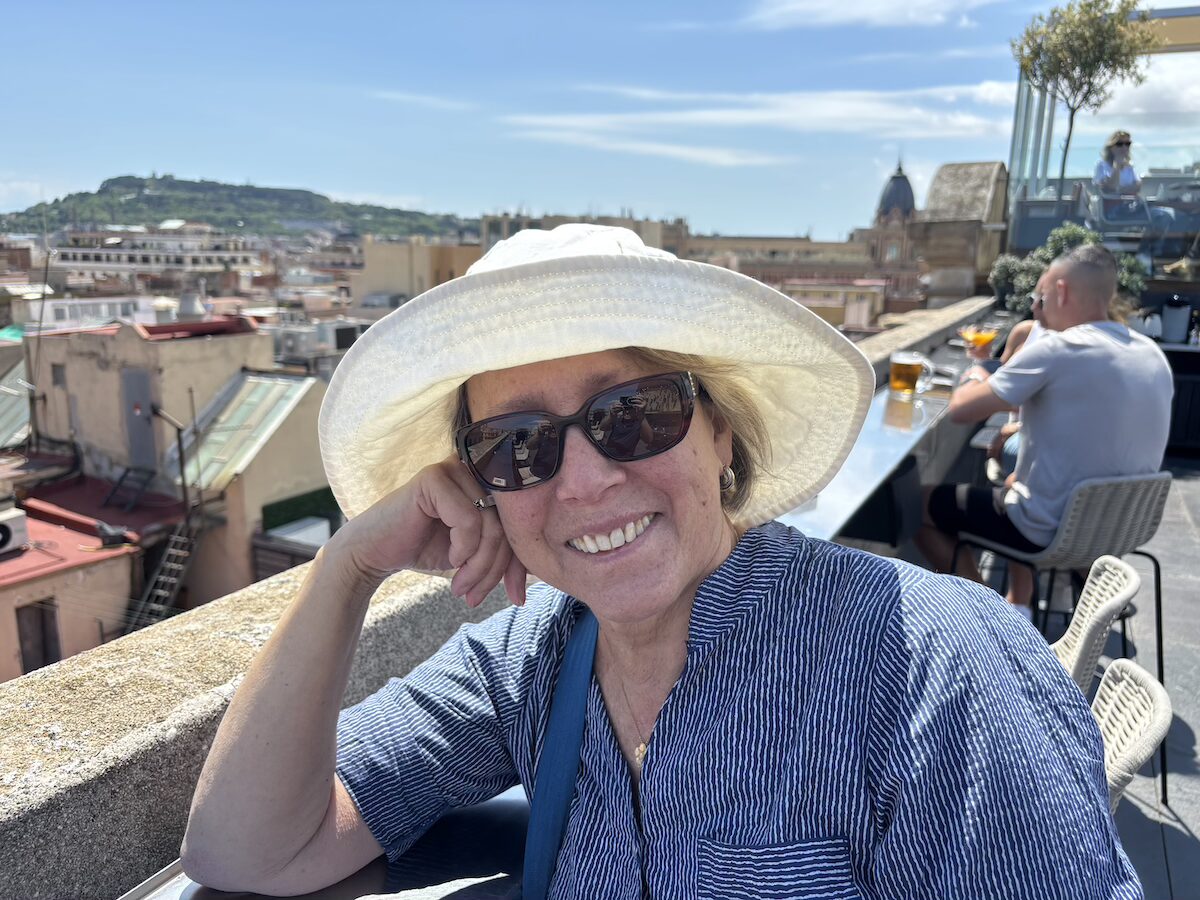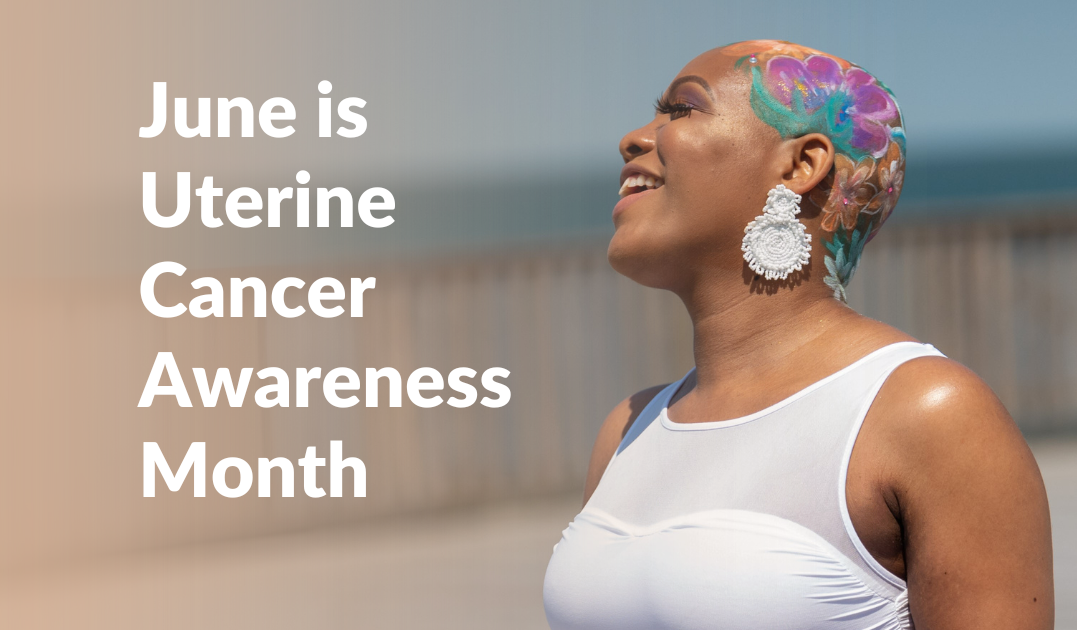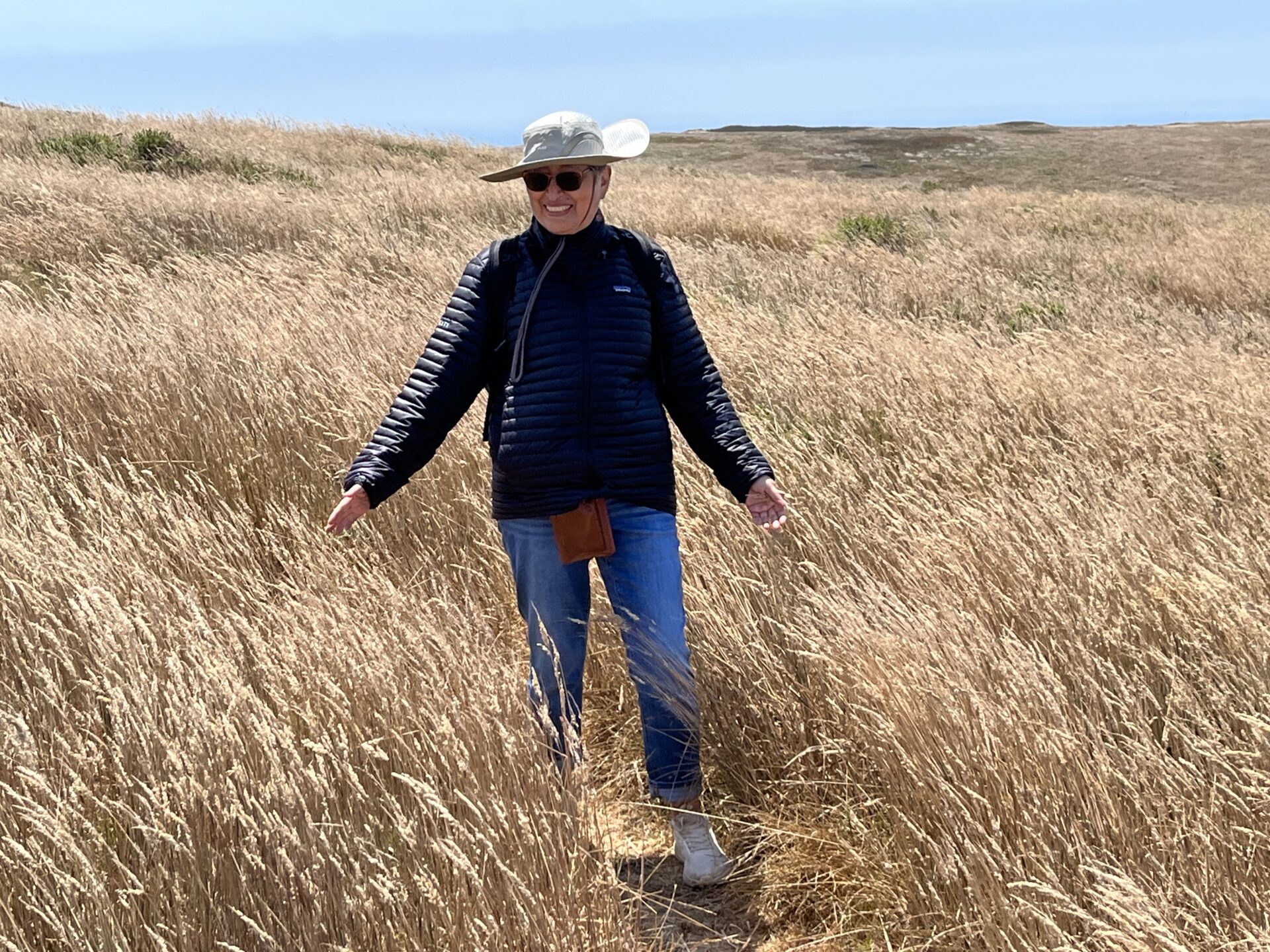Diagnosed with ovarian cancer in 2022, Marsha Biven currently participates in a number of OCRA programs, including Staying Connected, Survivors Teaching Students, and Woman to Woman. Read on to learn more about her story, including how a vision board (and a rogue parakeet!) factored into her experience and why her professional background is an asset in her role as a Woman to Woman mentor.
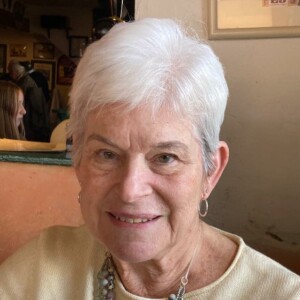
Could you please share a bit about yourself and your family?
I am 72 years old. I have been married to my husband Tom for almost 18 years. We met in grief counseling. His wife died of breast cancer in 2003 and my husband died of esophageal cancer that same year. We have a blended family. I have two children who are grown and two teen granddaughters who are twins. Tom has one grown son and two grandsons, one of whom is a freshman playing baseball at University of Louisville — so we go to a lot of baseball games! I also have four grown stepchildren from my second marriage and one grandson.
Personal passions?
Ballet, both dancing and watching it.
I also raise and tag monarch butterflies.
I am passionate about getting the word out about ovarian cancer. I participate in OCRA’s Staying Connected: Just Diagnosed support series and teach third year medical students and nurses through OCRA’s Survivors Teaching Student program. I also have signed up to be a mentor in the Woman to Woman (W2W) program.
What motivated you to become an OCRA Woman to Woman (W2W) mentor?
Although the online support groups are wonderful and keep us going into whatever uncertain future is before us, sometimes it is nice to have someone who calls and checks on you specifically — someone who has been through what you are going through.
How does your professional background complement your role as a W2W mentor?
My medical background enables me to contribute support around navigating the journey through doctors and hospitals. My background is in healthcare, first as a medical laboratory scientist and then healthcare administration. I retired from Baptist Health La Grange in 2014. I then accepted a position as a part-time adjunct professor at Bellarmine University, where I still work.
What has been your experience with ovarian cancer?
My ovarian cancer journey began in early January 2022. My friend and I always create a vision board by drawing or painting out our vision of the coming year. My vision for 2022 included the performance of a ballet for which I had already been training. Well, one day my parakeet got loose and pooped on my yet unfinished board. This was the sign that 2022 was not going to be a great year.
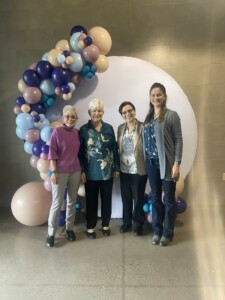
In December of 2021, I had started feeling fatigued — a different level of fatigue from “normal fatigue” from work or activities. I saw my primary care provider (PCP) in mid-January, and she ordered the appropriate tests. All were normal. About a week later, I noticed a twinge in my left side. Over the next weeks, it became more intense and persistent. I revisited my PCP and a CT scan was ordered but couldn’t be scheduled for a week. On January 29, I asked my husband to drive me to the emergency department. He tried to deter me because it was a Friday night, during COVID precautions, in a snowstorm. I persisted because the pain level was now about an 8 on a scale of 10.
Pain is a good thing sometimes, and this pain allowed the cancer to be found and treated before it moved out of my abdomen. A CT scan showed two masses on either side of my left ureter causing the urine to be backed up into my kidney. I was admitted to the hospital for an emergency stent procedure and biopsy. The biopsy showed a cancer of Müllerian origin, probably ovarian. My lifelong roles were flipped. Instead of being part of the healthcare team, I was the patient with a life-threatening disease. Friends and family were wonderful with their support but what it comes down to is you, your life, and the enemy: cancer. The cancer was Stage 3C high-grade serous.
My treatment began with three rounds of chemotherapy spaced three weeks apart. Debulking surgery was performed and then three more rounds of chemo. I finished treatment in mid-July of 2022 and now receive infusions of [bevacizumab] every three weeks to hopefully prevent a recurrence.
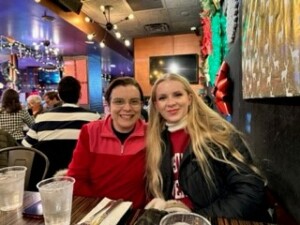
How has your diagnosis impacted your family?
Cancer does not just affect the patient; it includes family and friends. Even though I didn’t have a BRCA1 or BRCA2 mutation that could increase ovarian cancer risk for my sister, daughter and granddaughters, my sister had her ovaries and fallopian tubes removed. My daughter plans to have a total hysterectomy when she is past menopause. In the meantime, she is having ultrasounds to monitor her health.
Is there any advice you would like to give to others navigating an ovarian cancer diagnosis?
My advice to newly diagnosed women is to sign up for a mentor and also join OCRA’s Staying Connected: Just Diagnosed support group. There you will find information, friendship and strength to get you through this difficult journey.
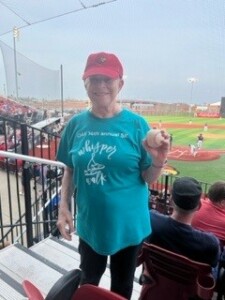
Anything else you would like to add?
As a mentor, what I want to share is hope. I seriously thought I would die within a year when I first heard the stage of my cancer, but I have met women in that stage and higher surviving and living their lives. The hardest part is not knowing if it will come back, having a dark cloud always over your head. But it becomes easier as you meet more brave survivors.
